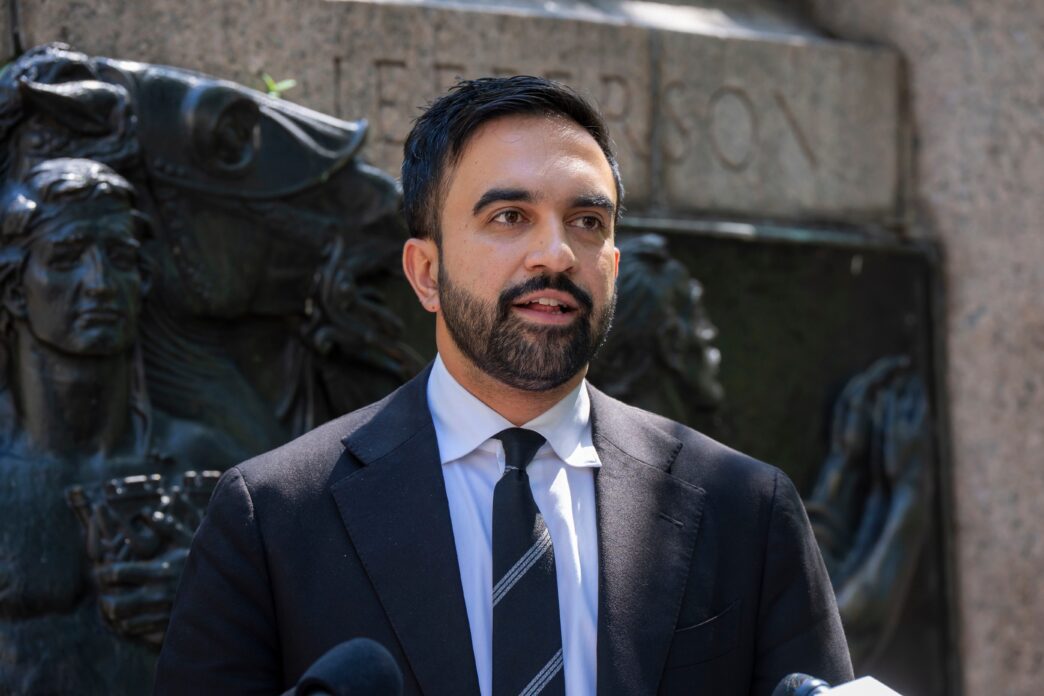Executive Summary
- Democrats are grappling with an internal identity crisis, highlighted by the contrasting candidacies of democratic socialist Zohran Mamdani and moderate Abigail Spanberger, representing divergent paths for the party.
- Mamdani advocates for expanded government services and addressing cost-of-living issues, while Spanberger champions a centrist, pragmatic approach, criticizing perceived party excesses and unrealistic promises.
- Mainstream Democratic leaders largely dismiss Mamdani’s progressive approach as a national blueprint, emphasizing that voters in swing states are focused on local issues rather than the New York mayoral race.
The Story So Far
- Democrats are currently grappling with a significant internal identity crisis, marked by a deep ideological schism between progressive and moderate factions, which reportedly undermined the party in last year’s presidential race. This ongoing division is driving a search for new political pathways and a strategy to rebound effectively, particularly as these pivotal elections unfold nine months into President Trump’s second term.
Why This Matters
- The internal struggle within the Democratic Party, exemplified by the contrasting candidacies of democratic socialist Zohran Mamdani and moderate Abigail Spanberger, signals a critical juncture for its future identity and electoral strategy, potentially determining its ability to unify disparate factions, craft a broadly appealing message, and effectively challenge the political landscape shaped by President Trump.
Who Thinks What?
- Abigail Spanberger and other mainstream Democratic leaders advocate for a pragmatic, centrist approach focused on competence, legislative success, and local issues, cautioning against “unrealistic promises” and democratic socialist platforms that they believe could harm the party’s long-term credibility or appeal in swing states.
- Zohran Mamdani and his progressive supporters believe that directly addressing economic conditions, advocating for expanded government services, and adopting a democratic socialist platform offer a credible alternative that resonates with voters alienated from mainstream politics.
- Representative Ro Khanna believes both centrist and progressive candidates represent a rejection of the status quo and new leadership, arguing that the Democratic Party should embrace diverse strategies and not solely define its identity around Donald Trump.
Democrats are grappling with an internal identity crisis, underscored by the contrasting candidacies of democratic socialist Zohran Mamdani in New York and moderate former CIA officer Abigail Spanberger in Virginia, as Tuesday’s elections unfold nine months into President Trump’s second term. These pivotal races are seen by some within the party as offering two distinct pathways for Democrats to redefine themselves and rebound politically.
Spanberger, a 46-year-old former CIA officer, has advocated for a more centrist approach, criticizing what she perceives as party excesses. In contrast, Mamdani, a 34-year-old democratic socialist, has gained prominence through multilingual videos focusing on cost-of-living issues and advocating for expanded government services.
The upcoming elections highlight an unresolved schism between progressives and moderates that reportedly undermined the party in last year’s presidential race. While Mamdani’s innovative communication style and passionate base are noted, some Democrats express apprehension about being associated with his democratic socialist platform or his anti-Israel views.
Speaking from her campaign bus in Ashland, Virginia, Spanberger questioned the national focus on Mamdani’s urban race. She expressed skepticism about Mamdani’s claim of winning the “battle over the soul of the Democratic Party,” suggesting he “should be a Democrat” despite him being the party’s nominee.
Spanberger further argued against what she views as unrealistic promises, such as government-run grocery stores, which she believes could harm Democrats’ long-term credibility. She emphasized that voters desire aspiration but also honesty, and that making unfulfillable promises can disappoint vulnerable constituents.
Mamdani, however, offered a more conciliatory perspective, stating that the party must allow all Americans to see themselves within it. He emphasized that the common goal binding Democrats should be the fight to serve working people.
Divergent Visions and National Implications
While mayoral races in New York typically lack national implications, Mamdani’s upset victory over former New York Governor Andrew Cuomo in the primary has elevated his current contest. He is now working to consolidate Democratic support against Cuomo’s independent bid, which appeals to Trump supporters and moderate voters.
Representative Ro Khanna, a Silicon Valley congressman, is one of the few national Democrats to campaign for both Spanberger and Mamdani. Khanna believes both candidates represent a rejection of the status quo and a new generation of leadership, arguing that Democrats should not define their identity solely around Donald Trump.
However, mainstream Democratic leaders are largely hesitant to adopt Mamdani’s approach as a national blueprint. Representative Suzan DelBene, chair of the House Democrats’ campaign arm, noted that voters in swing states are focused on local issues, not the mayor of New York.
Similarly, Democratic Governors Association Executive Director Meghan Meehan-Draper stated that the New York mayoral race holds little relevance for gubernatorial contests. House Minority Leader Hakeem Jeffries also directly dismissed the notion that Mamdani represents the future of the Democratic Party.
Spanberger’s Pragmatic Approach
Spanberger’s campaign emphasizes competence and a track record of legislative success, having had bills signed by both President Biden and President Trump. She and Representative Mikie Sherrill, a close friend and fellow moderate, were instrumental in flipping the U.S. House to Democratic control during Trump’s first term.
Spanberger believes that the current political moment, while distinct from the post-Trump “resistance” era, still calls for a pragmatic approach. She observes a maturation in advocacy, with a broader range of people engaging in community leadership.
Mamdani and his team, conversely, attribute his appeal to directly addressing the economic conditions and alienation many feel from mainstream politics. They argue that his “style is downstream from the substance,” and that his message resonates because it offers a credible alternative to the current status quo.
Senator Ruben Gallego, who successfully ran in Arizona, campaigned for Spanberger and Sherrill, noting that while Mamdani’s platform might not succeed in a swing state like Arizona, his focus on the cost of living aligns with broader Democratic concerns. Gallego highlighted the historical diversity within the Democratic Party, contrasting it with what he described as the “weird span of things” among Republicans.
Looking Ahead
The outcomes of these diverse electoral contests are expected to provide insights into the Democratic Party’s future direction and its ability to reconcile internal ideological differences while building a broad coalition capable of challenging the political landscape shaped by President Trump.








